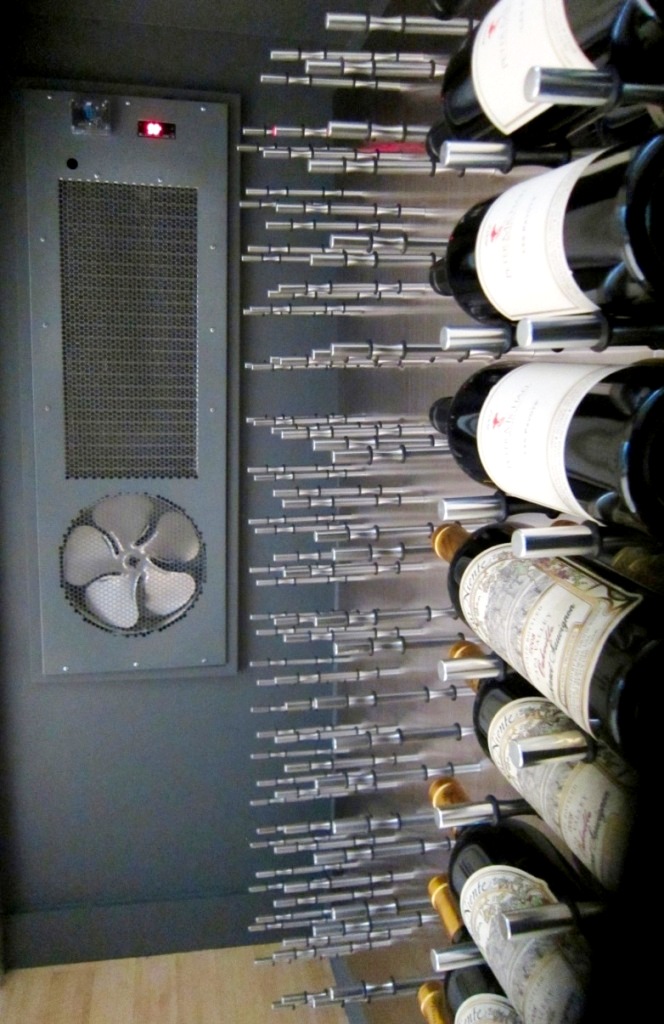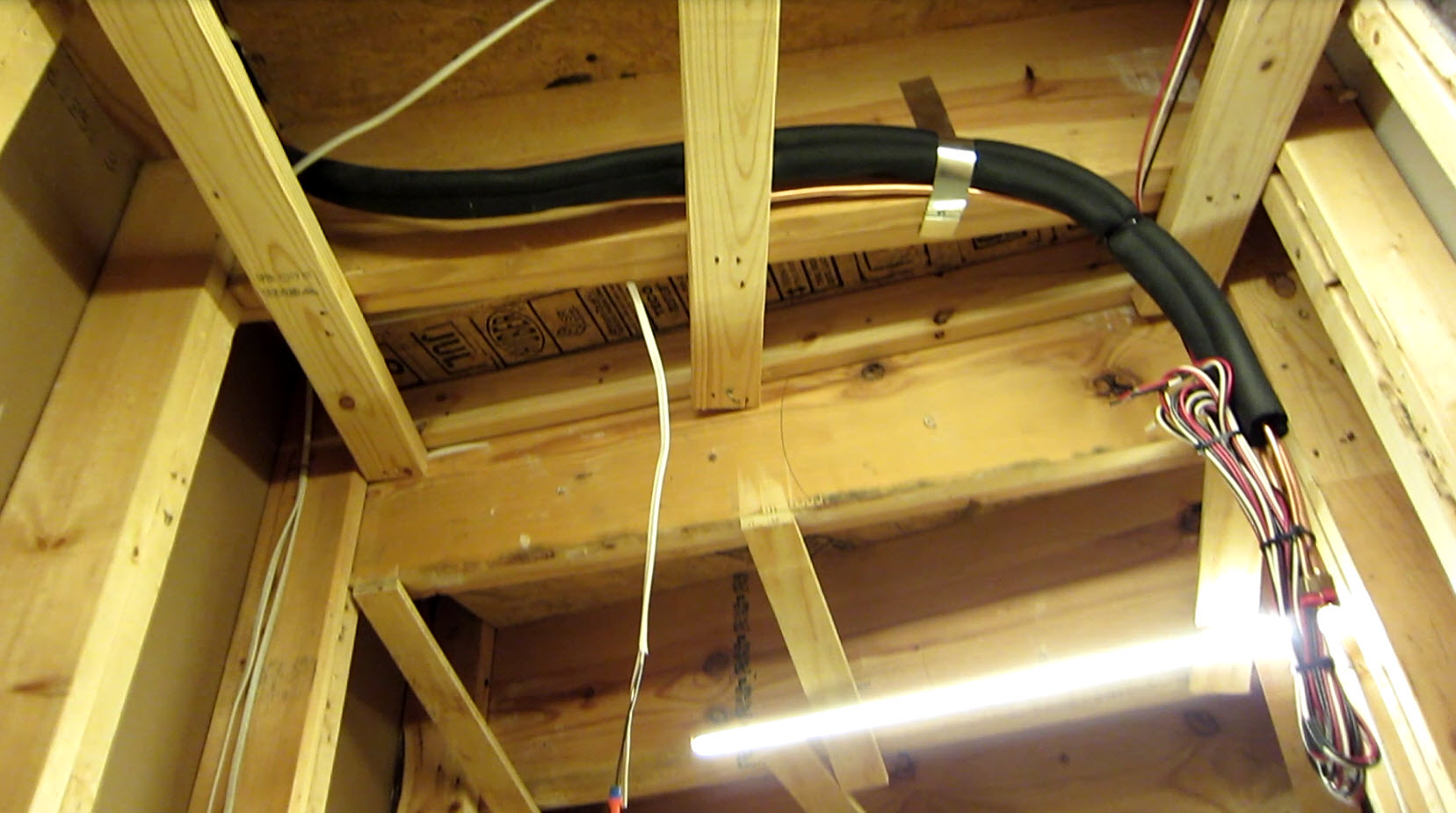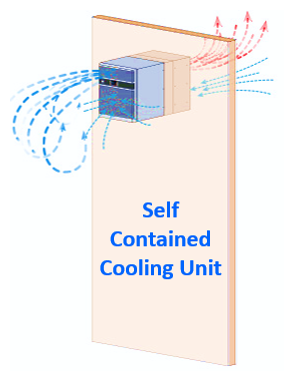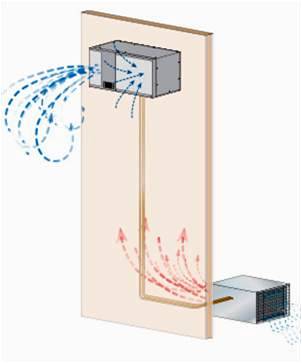Types of Wine Cellar Cooling Systems
The primary function of a wine cellar is to store wines at their optimum temperature. The wine cellar cooling system plays a crucial role in the proper storage of your collection. When you work with a wine cellar refrigeration expert, you do not have to worry about spoiled wines caused by poor conditions.Wine Cooling System: An Essential Element in Building Functional Wine Cellars in Seattle
When building custom wine cellars in Seattle, the refrigeration system is one of the most critical components. It should not be ignored because it plays a significant role in preserving your wine’s quality. Wine aging requires you to invest in a facility designed to maintain a cool and humid environment.
At Custom Wine Cellars Seattle, we care for your wines. Our main goal is to build safe wine rooms that will protect your wines from external factors such as heat, light, vibration, and odor. The absence or wrong installation of your climate control system will result in significant problems in the future. Therefore, it is a smart move to hire a wine cellar cooling expert in Seattle.
Our team at Custom Wine Cellars Seattle has extensive knowledge and experience in wine cellar refrigeration. We know and understand that for your wines to reach their peak maturation before it is ready to be opened, it must age in a stable environment.
How We Choose the Ideal Wine Cellar Cooling System: Standard Procedure Followed by Experts in Seattle
It is wrong to think that you can use a regular air conditioner for your wine cellar. Our HVAC technician will perform a heat load calculation to help us determine the most suitable type and size of your refrigeration unit. With this process, we can know the required BTUs. BTUs are dependent on the location of your wine cellar. We will consider all of the heat sources (e.g., sun, appliances, etc.) that can affect the cooling function of your wine cellar refrigeration system.
Process in Wine Cellar Cooling Unit Installation
Before installing your wine cellar refrigeration system, we have to prepare the room by framing, installing the electrical wiring, and insulating the walls and the ceiling. Failure to set up and construct the supporting infrastructure can have devastating effects on your wine’s quality and the structural integrity of your wine cellar.
Inadequate or incorrect insulation has the following effects:
- Fluctuating temperatures, which can trigger mold growth
- Overworked wine cellar cooling system (causing breakdowns, repair, replacement, or noisy operation)
- Higher energy bills
Some of our wine cellar cooling systems require ductwork while some do not. Therefore, the assessment of your wine room requirements is an essential step in making sure that the correct insulation value and the right refrigeration unit are installed. Custom Wine Cellars Seattle will ensure that we seal your wine room correctly to avoid costly mistakes in the future.
Different Types of Wine Cellar Cooling Units
We offer innovative cooling solutions both for residential and commercial wine cellars. Our refrigeration units are manufactured by trusted brands like Wine Guardian wine cellar cooling units, WhisperKool wine cellar refrigeration systems, CellarPro wine cellar cooling units, and US Cellar Systems.
The type and model of wine cellar cooling unit that you need will depend on the following factors:
- Size and location of your wine cellar
- Number of bottles you intend to store
- Amount of glass
- Your financial requirements
- R-factors
Through the Wall or Self-Contained Wine Cellar Cooling System
If you are looking for an affordable, yet effective wine cellar cooling solution, Custom Wine Cellars Seattle recommends the self-contained wine refrigeration system. Its installation does not require an HVAC technician, saving you money for the labor fee. Keep in mind that the equipment is mounted between the wall studs.
Moreover, you will need an adjacent room to allow the dissipation of heat that is coming from your wine cellar cooling unit. This exhaust room can be your garage, mechanical room, or basement that has a temperature not exceeding 80 degrees Fahrenheit.
Ducted Split and Self-Contained Wine Refrigeration System
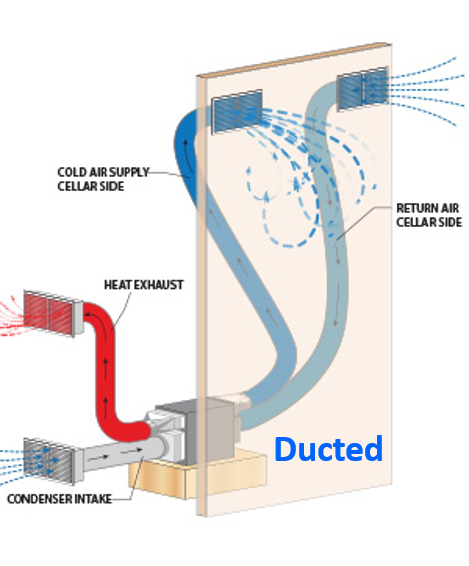
Ducted Self-Contained Wine Cellar Cooling Unit: Recommended by Seattle Master Builders for a Quiet Operation
This type of cooling system is similar to the ductless refrigeration system. The only difference is that with this option, there will be no visible equipment in your wine cellar. The evaporator and the condenser are placed outside the wine room in different locations. The cool air from the system is ducted to and from the cellar. Since the condenser (the noisier component) is outside the wine cellar, you can expect a quiet operation. Another type of split system is the self-contained air handler, which contains both the evaporator and condensing unit in one housing.
Another benefit of this system is that no exhaust room is needed for venting because the condenser is located outdoors. If you want to maximize your space and do not want to hear any sound from your refrigeration unit, Custom Wine Cellars Seattle recommends the ducted-split wine cellar cooling unit.
Ductless Wine Cellar Cooling Unit
The ductless cooling system offers benefits like the ducted system such as the absence of fan noise, and there is no need for an exhaust room. Additionally, it also provides convenience in maintenance because it allows the unit to be serviced on-site.
However, keep in mind that this system has disadvantages. It is more expensive, and the evaporator has to be installed inside the wine room. It will take up space on the wall or in your rack.
Do You Have Questions About Wine Cellar Cooling Units?
At Custom Wine Cellars Seattle, we create wine storage and display facilities designed to keep your wines at their best. We always ensure that your wine cellar can provide the optimum conditions necessary for your wine’s graceful aging by installing a reliable wine cellar cooling unit.
Have questions about wine cellar cooling? Talk to one of our specialists at +1 (206) 792-9912




?>)

